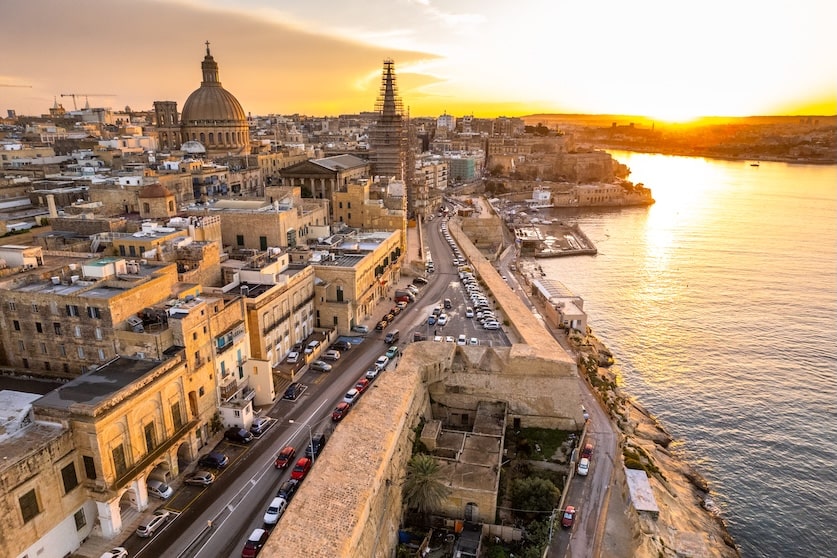Relocate to Malta – Residency Routes, Rules and Requirements
Malta Relocate provides structured, accurate guidance on Malta’s relocation and residency pathways. From the Malta Permanent Residence Programme to long-term settlement insights, we focus on helping you understand and navigate legal requirements.
✅ Step by step full process of relocating to Malta
✅ Malta Permanent Residence Programme (MPRP) assistance
✅ Stay aligned with legal residency criteria and documentation standards
✅ Designed for individuals, families, and global applicants planning a move
Click the link below to Book a Free consultation

What Is Relocating to Malta?
Malta, an EU member state with English as an official language, offers a stable economy, favorable climate, and reputable investment programs. Relocation can mean different things depending on your goal:
- Temporary residency for business, study, or employment
- Permanent residency through government-approved programs
- Citizenship by investment, under strict eligibility criteria
This site focuses on long-term relocation pathways that include residence rights, family inclusion, and, in some cases, naturalisation.
Why Malta in the first place?
Relocation to Malta is more than lifestyle—it’s strategic. Here’s why:
- Legal Certainty: Malta’s programs are regulated by official laws such as S.L. 188.06 and administered by the Community Malta Agency
- Access to the EU: Maltese residence or citizenship opens mobility across Schengen countries
- Family Inclusion: Dependants can be included in most programs
- Favorable Tax Regime: For eligible individuals, Malta’s tax framework may offer advantages
In short, Malta is not just a beautiful Mediterranean island—it’s a legal gateway to Europe.
How to Relocate Legally and Permanently
Relocation processes depend on your target outcome. Malta offers structured, legal routes for:
A. Residency by Investment
Residency can be granted to individuals who lease or buy property, pass due diligence, and maintain ties to Malta. This includes annual rent or property value thresholds.
B. Citizenship by Naturalisation for Exceptional Services
This pathway requires a minimum of 12–36 months of residence, followed by a significant investment, background checks, and a donation. Citizenship is granted only after ministerial approval.


Understanding the MPRP Programme (Malta Permanent Residence Programme)
The MPRP is Malta’s flagship permanent residency route for non-EU nationals. It offers a stable legal residence status in Malta, without citizenship, and includes dependants.
Basic Requirements:
- Contribution to the government
- Donation to an approved local NGO
- Property purchase or lease in Malta
- Clean criminal record and health insurance
- Proof of assets or income
Pathways for Residency and Citizenship
| Category | MPRP (Permanent Residence) | Citizenship by Investment |
|---|---|---|
| Residency Period Before Grant | Immediate after approval | 12 or 36 months |
| Investment Needed | €100,000+ (combined contributions) | €600,000–€750,000+ |
| Property Requirement | Lease (€10,000/year) or buy (€300k+) | Lease (€16,000/year) or buy (€700k+) |
| NGO Donation | €2,000 | €10,000 |
| Family Members Allowed | Yes, with additional fees | Yes, all undergo due diligence |
| Leads to Citizenship | No | Yes, after full compliance |
| Government Body In-Charge | Residency Malta Agency | Community Malta Agency |
Relocate with Confidence.
Every path to Malta whether temporary or permanent has legal, personal, and financial implications. At MaltaRelocate.com, we aim to simplify this complexity by offering clarity, not just keywords.
Whether you’re considering MPRP or citizenship through investment, you’ll find breakdowns, timelines, and legal references here no hype, just facts.
Frequently Asked Questions
Yes. Malta offers legal residency programs such as the MPRP that allow long-term stay without requiring citizenship. These still grant you rights to live, travel, and include family.
Permanent residence (like through the MPRP) gives you the right to live in Malta indefinitely. Naturalisation, on the other hand, leads to citizenship after residency and investment requirements are fulfilled.
Non-EU/EEA nationals with stable income or assets, clean background, and valid health insurance can apply. You must also meet property and contribution requirements.
Citizenship through investment in Malta requires a minimum residency period—either 12 months or 36 months, depending on the investment amount and government approval timeline.
Yes, under both MPRP and citizenship programs, leasing is accepted. The annual rent requirement starts at €10,000 for MPRP and €16,000 for citizenship applicants.
Absolutely. Both MPRP and citizenship programs allow the inclusion of dependants like a spouse, minor children, and financially dependent adult children or parents—each subject to additional documentation and fees.
